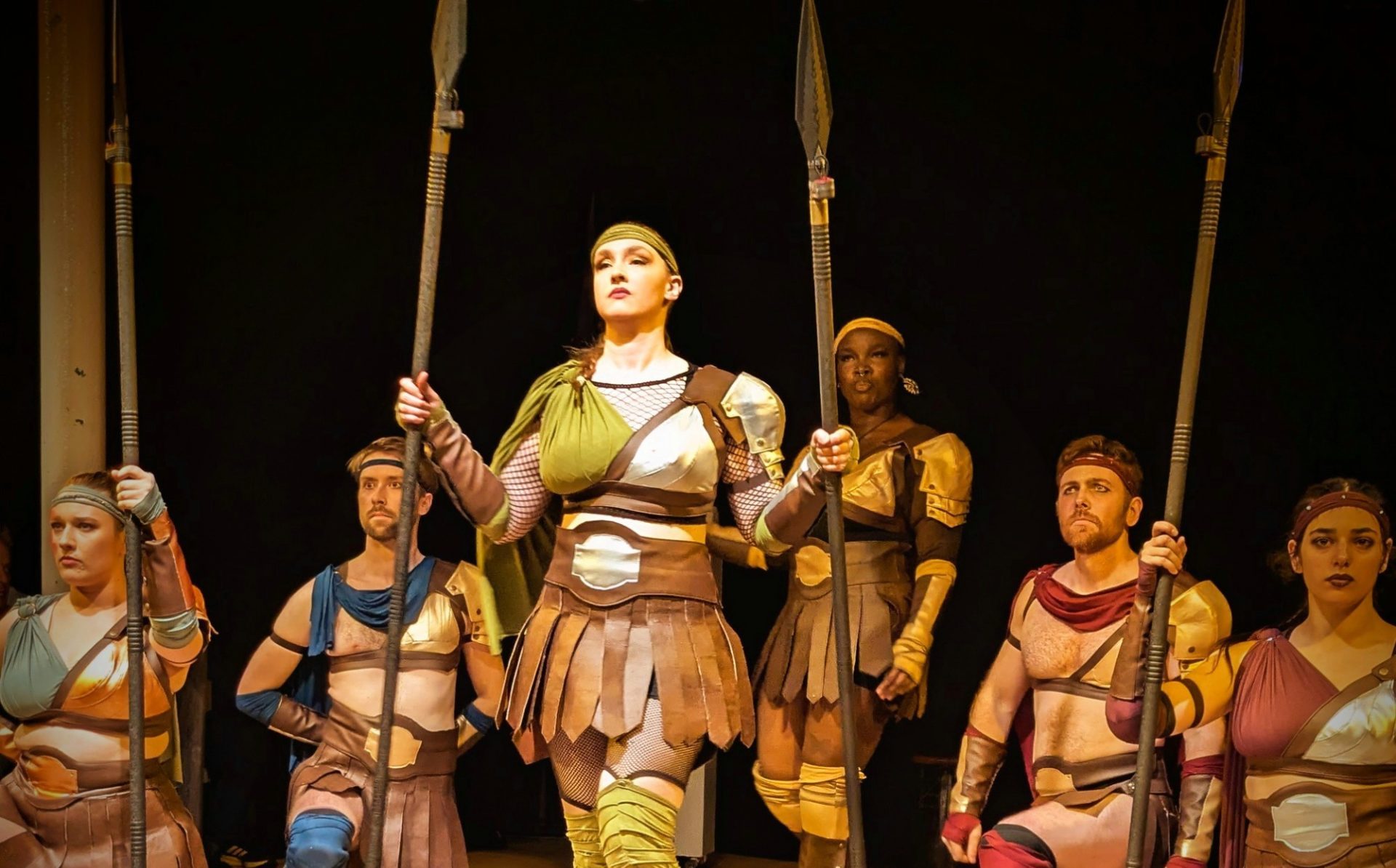I confess: before I saw this impressive original musical, I hadn’t known there was such a thing as a woman gladiator. But perhaps you’ll excuse my ignorance, because – as the show explains –material on the topic is curiously hard to find. It’s a central theme of Paul Bianchi’s enlightening script that, when we read what the Romans wrote about themselves, many voices remain silent. Slaves, freedmen, and most notably women: all get their opportunity to speak to us here.
It starts with a battle, the clashing of wooden sword against wooden shield, a full-throated spectacle that stirs the blood even today. It’s one of many exciting fight scenes dotted throughout the production, all performed with verve and commitment by a well-drilled and mutually-supportive cast. We’re introduced to four gladiatrices, each with a different personal story to tell; and as befits a musical, each takes their turn in the arena to recount their tale.
The character-defining songs are accompanied by striking visual set-pieces, which use movement and simple imagery to amplify the tale. We hear from a slave who’s been promised her freedom, and a woman who’s an outcast because of a birthmark on her face; we see a decent attempt to summarise an entire Colosseum show within a single song. We know from early on that we can’t be heading for a happy ending, but the finale – an excellent reprise of each of the main characters’ songs and stories – might be the next best thing.
The one significant male character, the emperor Septimius Severus, is everything we imagine a decadent Roman to be. Louche and slightly seedy, he defines the social chasm between the aristocracy and the fighting class. And then there’s Marius, an era-spanning narrator figure, who’s dressed as a Roman fighter but seems to be looking back from the present day. It’s he who gives us the history lesson, and a lesson on the nature of history itself – and if you ever feel he’s mansplaining, well, the gladiatrices might notice that too.
The lyrics are a little prone to point out the obvious – the word “objectify” clangs loudly in the opening song – and the questionable decision not to mic up the cast meant that softer lines were often lost to the void. The script also reaches for a parallel around bodily autonomy, which I feel muddies more than it clarifies: the inherent barbarity of gladiatorial games makes the analogy a morally complex one. But more than any of that, Gladiatrix is a leveller, a punchy and highly watchable performance that sells a story the history books omit. Thumbs up.


Comments